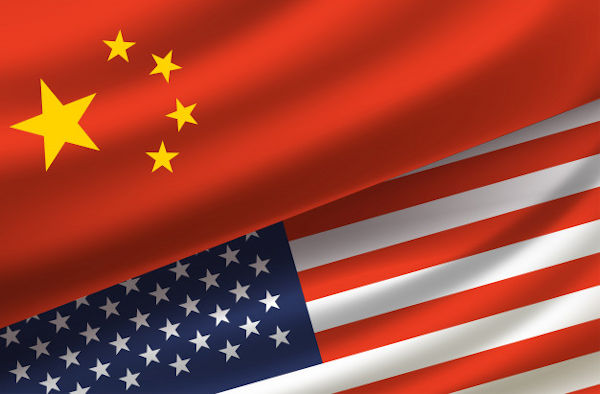China-US relations and the US election: Thucydides's Trap?
Posted on: 29 October 2020 by Dr Chonglong Gu in 2020 posts

Dr Chonglong Gu is lecturer/assistant professor in Chinese Translation Studies with the Department of Modern Languages and Cultures and is interested in issues of power, ideology, political discourse, media and communication.
Our world these days, to quote Dickens, is experiencing the best of times and the worst of times. Against a backdrop of uncertainty, chaos, distrust and division, the US elections loom large. Taking centre stage of this year’s election is no doubt the China-US relations, arguably the most important bilateral ties in our time.
The Sino-US relations have been a complicated one, to say the least. Since the ping-pong diplomacy and the subsequent normalisation of diplomatic relations, the bilateral ties have gone through a roller coaster ride. After the initial ‘honeymoon’ period, the relationship has been characterised by occasional partnership/cooperation, often animosity, and other times simply a case of being 'frenemies'. Being two large nations, China and the US are similar, yet drastically different on many levels. China considers itself to have 5000 years of history and saw itself as an old civilisational state and the centre of the world for much of history (evidenced in the Chinese name of China ‘Zhong Guo’ literally meaning the ‘middle kingdom’) until the Opium War when it felt that it was ‘sucker punched’ by the technologically and militarily far more superior British Empire in the late 1830s. In comparison, the US is a young nation, having taken a leadership role after the British Empire. For some time, the US has been a symbol of democracy, freedom, individuality and a beacon of hope, where people from all over the world can realise their American dreams.
Growing up watching news in China, the US was routinely portrayed as a nosy international police and the powerful imperialistic world power meddling into other countries’ own affairs. Fast-foward 20 odd years, people now wake up to a very different world. China, once the poor developing country, is portrayed on TV and newspapers in the West to be a major superpower on a par with the US. Already believed to be the world’s largest economy in PPP terms, China is the world factory and playing an increasingly proactive role on the global stage, while the US under Donald Trump is pulling away from the WHO and WTO, getting away from the trend of globalisation, struggling with Covid and getting mired in numerous ticklish domestic issues such as race. In other words, while China has become more active globally and emerged strong after the coronavirus pandemic, love it or loathe it, the US is in general decline and increasingly sees China as an existential threat.
In political science, Thucydides's Trap refers to the historical experience that the established status-quo world power and the rising world power are doomed to be on a collision course and war is more likely than not. Indeed, the current developments have also proven that Samuel Huntington was (partially) right in his most prescient ‘Clash of Civilizations’ thesis. While Beijing has repeatedly articulated that China has no intention of challenging Washington’s dominant position in global affairs and the Pacific Ocean is big enough to accommodate both nations, it seems that the two countries are inevitably on a collision course on economic, political, ideological, military and technological fronts. Huawei and Tiktok or their Western counterparts? A system featuring greater control yet greater efficiency or a system featuring greater freedom and different voices yet less efficiency and coordination? The world has come to a crossroads, reaching a point where smaller countries are obliged to pick sides between the two superpowers.
The 2020 US election is definitely one to watch. Joe Biden is perhaps a less exciting yet a more conventional and down-to-earth figure. In comparison, Donald Trump is a more colourful, bombastic and controversial leader, where as he put it himself ‘I bring the rage out in people’. Nevertheless, whoever is the winner, the US is likely to be an increasingly divided country domestically along ethnic, ideological and partisan lines (if not escalating into violence between people of contrasting views and allegiances). Globally, let’s hope that history can prove the Thucydides's Trap wrong, because peace, stability, and cooperation are in the interest of us all. A war, hot or cold, is the last thing the world needs at this juncture. After all, all existing systems represent meaningful attempts in human history in order to cope with different situations we face as human beings. Perhaps, agreeing to disagree, tolerance, dialogue, humility and cooperation provide the best formula going forward.
Discover more
Study in the Department of Modern Languages and Cultures at the University of Liverpool.
Visit the Department of Politics US Election hub.
Keywords: US election, United States, Election, China, Trump, Biden, Politics, Liverpool, Research.